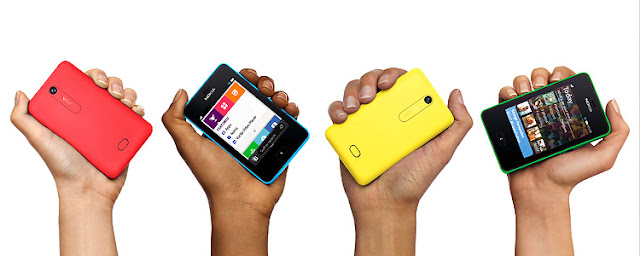Nokia on Thursday announced Asha 501, a smart device to take on the low-cost Android phones in developing markets like India.
At a global event held in New Delhi, Nokia CEO Stephen Elop said that the company had been very impressed by the way Asha phones performed so far and that it was time to refresh the platform. He said the Series 5 Asha phones had been made specifically for consumers in countries like India.
"India is a bell-weather market... It's symbolic that we are launching it here, " said Elop.
The Asha 501 runs on a revamped Asha operating system. It will cost $99 (Rs 5,300 approximately). Nokia said that in India it will be available in June. The device supports only 2G connection and Wi-Fi. Nokia said that the 3G version is likely to be launched later.
The device has a design similar to that of low-end Lumia phones. It will be available in six colours.
The Asha 501 has a 3-inch touchscreen and a 3.2MP camera. It will come with a 4GB microSD card.
"Asha raises the bar for what is possible in affordable smartphone design and optimization... The synergy between the physical design and the engine that is the new Asha platform has created a smartphone without style and substance," said Timo Toikkanen, executive vice president (mobile phones), Nokia.
Nokia also announced a global partnership with Facebook, saying that Asha 501 users on Airtel and MTNL will get free access to the social networking site.
Nokia has been counting on Asha phones to compete with affordable Android phones selling for less than Rs 10,000. Though initially the company got some success with its plan, in the last one year the cheaper Android phones have improved significantly and are hurting Asha sales hard.
The fact that Asha phones are finding the going tough was reflected in Nokia's quarterly results. Last month, the company reported that it shipped 5 million Asha phones in Q1, 2013 compared to 9.3 million devices in the previous quarter.
In total the company shipped 55.8 million phones in Q1, 2013, a 30% decline compared to the numbers in previous quarter. The decline in the Nokia's business was particularly bad in China, where cheap Android phones made by local companies have found a favour with consumers. In Q1, 2012 the company shipped 9.2 million phones in Greater China. In the first quarter of 2013, it shipped only 3.4 million phones.
During the same duration, the shipment of Nokia phones fell by 11% in Asia-pacific, 28% in Middle East and Africa, 20% in Latin America 25% in Europe.
In 2011, when Nokia decided to make a switch to Windows Phone, Elop had asked two years of time from shareholders to show results. However, Nokia's performance so far has not been particularly great. At a meeting with Nokia shareholders a few days ago, Elop reportedly said, "we're not out of the woods yet."
While the company is selling more Lumia devices every quarter, it has failed to compensate for the business the company has lost in the overall phone market.
According to a report by Reuters, the shareholders were not happy with the CEO. "You're a nice guy ... and the leadership team is doing its best, but clearly, it's not enough," a shareholder told Elop. "Are you aware that results are what matter? The road to hell is paved with good intentions. Please switch to another road."
Elop reportedly replied that there was no plan B and the company has to stick with Windows Phone.






0 Comments